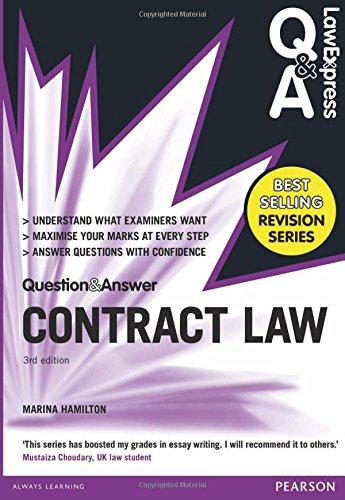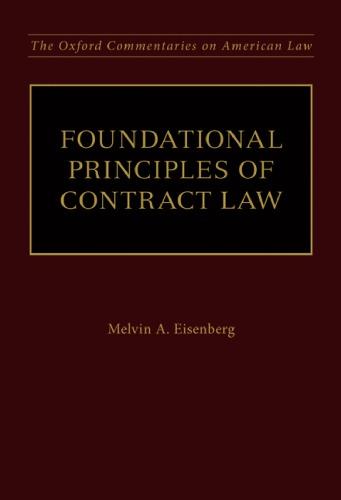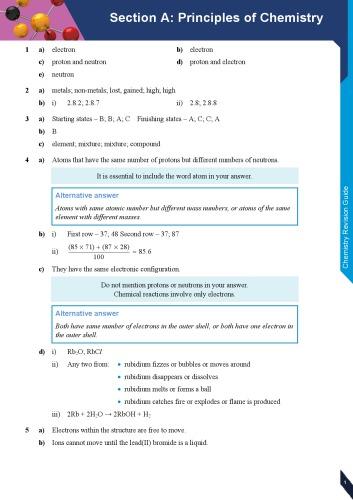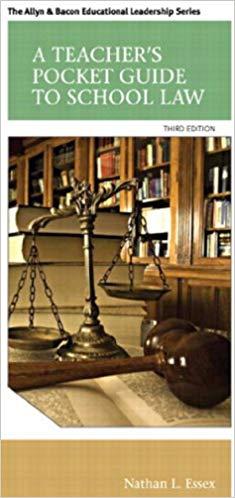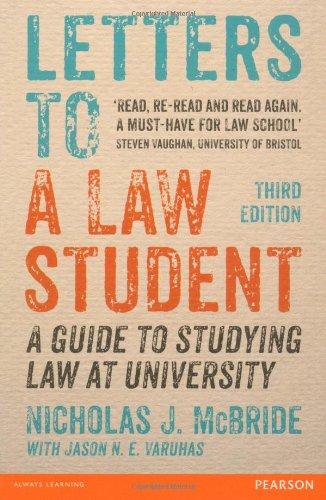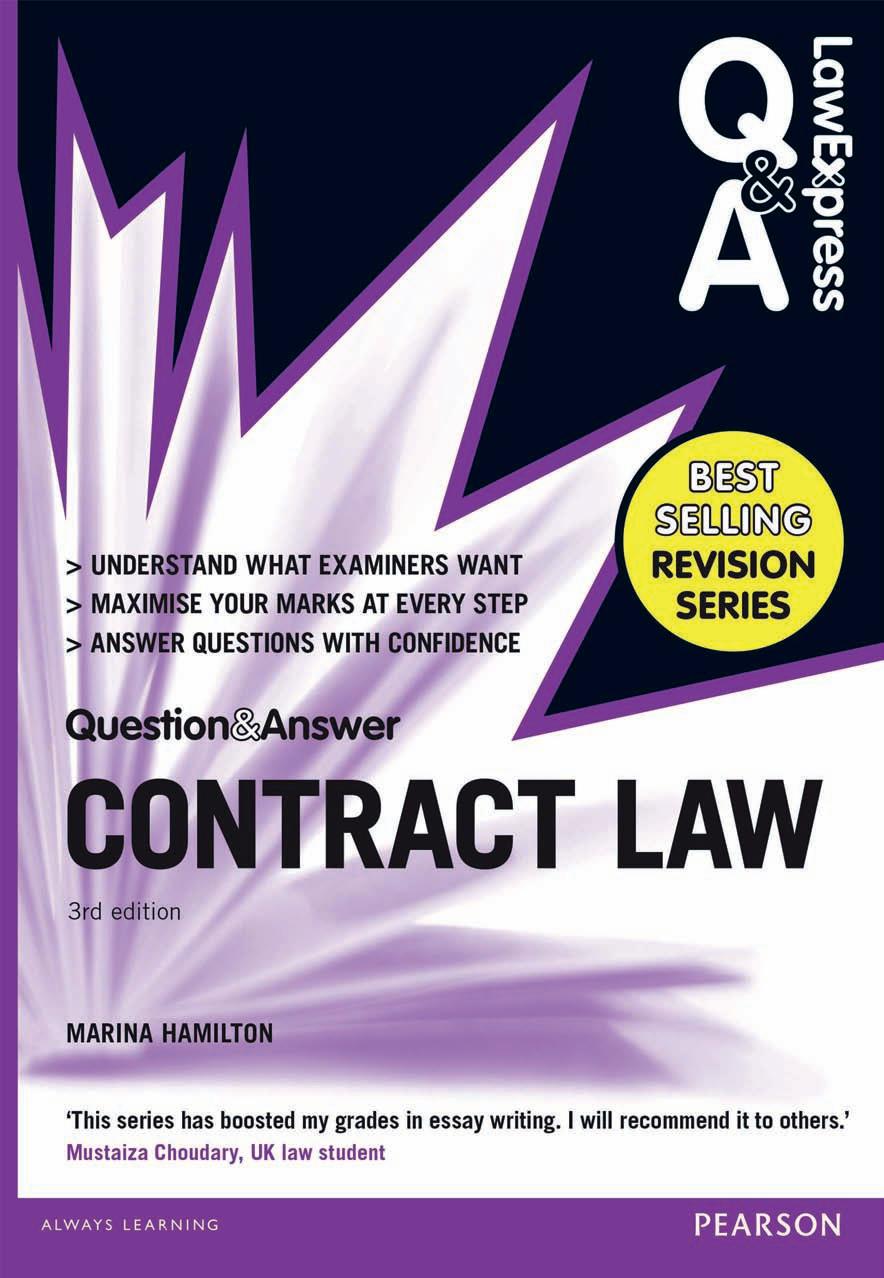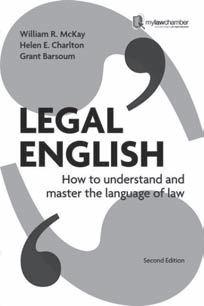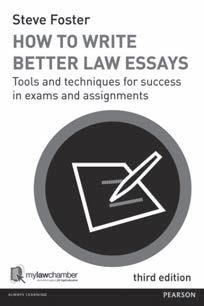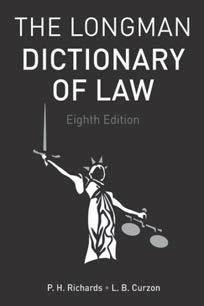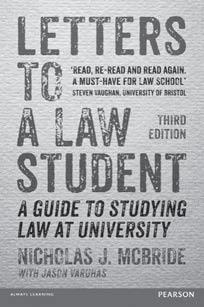Table of cases and statutes
Cases
Adams v Lindsell (1818) 1 B & Ald 681 5, 8
Adam Opel Gmbh v Mitras Automotive (UK) Ltd [2007] EWHC 3252 (qB) 171
Afovos Shipping Co. SA v Pagnan and Lli (The Afovos) [1983] 1 All ER 449; [1983] 1 WLR 195 195, 198, 202
Ailsa Craig Fishing Co. Ltd v Malvern Fishing Co. Ltd and Securicar (Scotland) Ltd (The Strathallan) [1983] 1 WLR 964 115
Alfred McAlpine Construction Ltd v Panatown Ltd [2001] 1 AC 518 235
Alfred McAlpine Capital Projects Ltd v Tilebox Ltd [2005] EWHC 281 (TCC) 240
Allcard v Skinner (1887) 36 Ch D 145; [1887] 56 LJ Ch 1052 179, 183
Allied Maples Group Ltd v Simmons & Simmons [1995] 1 WLR 1602 232
Amalgamated Investment & Property Co. v John Walker & Sons Ltd [1977] 1 WLR 164 211, 220
Annulment Funding Company Ltd v Cowey [2010] EWCA Civ 711; [2010] All ER (D) 205 (Jun) 180
Appleby v Myers (1867) LR 2 CP 651 212, 215, 216, 224
Arcos Ltd v E A Ronaasen & Son [1933] AC 470; [1933] All ER Rep 646, HL 101, 190, 191, 195, 196
Associated Japanese Bank (International) Ltd v Crédit du Nord SA [1988] 3 All ER 902; [1989] 1 WLR 255 151
Atlantic Baron, The. See North Ocean Shipping v Hyundai Construction
Atlas Express Ltd v Kafco (Importers and Distributors) Ltd [1989] qB 833; [1989] 1 All ER 641 171
Attorney General v Blake [2001] 1 AC 268 231, 232, 236
Attwood v Small (1838) 6 Cl & Fin 232 125, 139, 143
Avery v Bowden (1855) 5 E & B 714 198, 199, 203, 225
BP Exploration Co. (Libya) Ltd v Hunt (No 2) [1979] 1 WLR 783 212, 216, 221, 224
Balfour v Balfour [1919] 2 KB 571 23
Balmoral Group Ltd v Borealis (UK) Ltd [2006] EWHC 1900 (Comm); [2006] 2 Lloyd’s Rep 629 19, 32
Bannerman v White (1861) 10 CBNS 844 87
Banque Financière de la Cité v Westgate Insurance [1991] 2 AC 249; [1990] 3 WLR 364; [1990] 2 All ER 947 136
Barry v Davies (t/a Heathcote Ball & Co) [2000] 1 WLR 1962 26, 27
Barton (Alexander) v Armstrong (Alexander Ewan) [1976] AC 104 169
Bell v Lever Bros Ltd [1932] AC 161 151, 155, 157, 158
Beswick v Beswick [1968] AC 58 70, 72, 75
Bettini v Gye (1876) 1 qBD 183 88, 99
Birse Construction Ltd v Eastern Telegraph Co. Ltd [2004] EWHC 2512 (TCC) 236
Bisset v Wilkinson [1927] AC 177 121, 125, 129, 130, 138, 143
Blackpool and Fylde Aero Club v Blackpool Borough Council [1990] 1 WLR 1195; [1990] 3 All ER 25 26, 27
Bolton v Mahadeva [1972] 2 All ER 1322 195
Boone v Eyre (1779) 96 ER 767; (1779) 2 Wm Bl 1312 191
Borealis AB v Geogas Trading SA [2010] EWHC 2789 (Comm) 246
Bowerman v Association of British Travel Agents Ltd [1996] CLC 451 13, 34
Brimnes, The See Tenax Steamship Co. v Owners of the Motor Vessel Brimnes
Brinkibon Ltd v Stahag Stahl und Stahlwarenhandel GmbH [1983] 2 AC 34; [1982] 2 WLR 264 5, 6, 9
British Crane Hire Corp Ltd v Ipswich Plant Hire Ltd [1975] qB 303 84
British Steel Corp v Cleveland Bridge & Engineering Co. Ltd [1984] 1 All ER 504 29
British Westinghouse Electric and Manufacturing Co.
Ltd v Underground Electric Railways Co. of London Ltd [1912] AC 673 235
Britvic Soft Drinks Ltd v Messer UK Ltd [2002] EWCA
Civ 548; [2002] 2 All ER (Comm) 321, CA; affirming [2002] 1 Lloyd’s Rep 20, Comml Ct 110, 111, 114
Brogden v Metropolitan Railway Co. (1877) 2 App Cas 666 6, 14, 17, 31
BSkyB Ltd v HP Enterprise Services UK Ltd [2010] EWHC 862 (TCC); [2010] All ER (D) 05 (Jul) 132, 139, 141, 143
Butler Machine Tool Co. Ltd v Ex-Cell-O Corp (England) Ltd [1979] 1 WLR 401 15, 17, 30–2
Byrne & Co. v Leon Van Tienhoven & Co. (1879 – 80) LR
5 CPD 344 5, 6, 8, 13
C & P Haulage v Middleton [1983] 3 All ER 94; [1983] 1 WLR 1461 238, 244
CTN Cash and Carry Ltd v Gallaher Ltd [1994] 4 All ER 714 171, 176
Caparo Industries plc v Dickman and Others [1990] 1 All ER 568; [1990] 2 WLR 358 126
Carlill v Carbolic Smoke Ball Co. [1893] 1 qB 256 8, 13, 14, 21, 26, 34, 35
Cehave NV v Bremer Handelsgesellschaft mbH (The Hansa Nord) [1976] qB 44 101
Central London Property Trust v High Trees House Ltd [1947] KB 130 49, 50, 55, 63
Chandler v Webster [1904] 1 KB 493 215
Chapelton v Barry Urban District Council [1940] 1 KB 532 104, 108, 113
Chaplin v Hicks [1911] 2 KB 786 27, 232
Chappell & Co. Ltd v Nestlé Co. Ltd [1960] AC 87 39, 40, 46, 48, 54, 57, 62
Chwee Kin Keong v Digilandmail.com Pte Ltd [2004] SGHC 71 10
City and Westminster Properties (1934) Ltd v Mudd [1959] Ch 129; [1958] 2 All ER 733 83, 87
Clea Shipping Corp v Bulk Oil International (The Alaskan Trader) (No 2) [1984] 1 All ER 129 199, 204
Collier v P & M J Wright (Holdings) Ltd [2007] EWCA Civ 1329 56, 60
Collins v Godefroy (1831) 1 B & Ad 950 41, 46
Combe v Combe [1951] 2 KB 215 50, 55, 64
Compagnie Noga D’Importation et D’Exportation SA v Abacha (No. 2) [2003] EWCA Civ 1100 45
Couchman v Hill [1947] KB 554 82
County NatWest v Barton [2002] 4 All ER 494 123, 143
Couturier v Hastie (1856) 5 HL Cas 673 150, 156
Credit Lyonnais Bank Nederland NV v Burch [1997] 1 All ER 144 184
Cundy v Lindsay (1878) 3 App Cas 459 152, 159, 164
Cunliffe-Owen v Teather & Greenwood [1967] 1 WLR 1421 90, 95
Currie v Misa (1875) LR 10 Exch 153 45, 53
Cutter v Powell (1795) 6 Term Rep 320 190, 194, 196, 217
D & C Builders Ltd v Rees [1966] 2 qB 617 50, 55, 64, 172
DSND Subsea Ltd v Petroleum Geo-Services (PGS) Offshore Technology AS [2000] All ER (D) 1101; [2000] BLR 530 171 –3, 175–7
Dadourian Group International v Simms [2009] EWCA Civ 169; [2009] 1 Lloyd’s Rep 601 130
Daulia Ltd v Four Millbank Nominees Ltd [1978] Ch 231 15, 21, 35, 36
Daventry District Council v Daventry & District Housing Ltd [2012] 1 WLR 1333 152
Davis Contractors v Fareham Urban District Council [1956] AC 696 210, 212, 216, 219, 224
Denny, Mott and Dickson Ltd v James B Fraser and Co. Ltd [1944] AC 265; [1944] 1 All ER 678 225
Derry v Peek (1889) 14 App Cas 337 125, 139, 143
Devenish Nutrition Ltd v Sanofi-Aventis SA (France) [2008] EWCA Civ 1086; [2009] 3 All ER 27; [2009] 3
WLR 198 232
Dickinson v Dodds (1876) 2 Ch D 463, CA 13, 22, 35
Dimmock v Hallett (1866–67) LR 2 Ch App 21 120–2, 129, 130, 132, 134, 138, 142
Downs v Chappell [1996] 3 All ER 344 122
Doyle v Olby (Ironmongers) Ltd [1969] 2 qB 158 140
Dunlop Pneumatic Tyre Co. Ltd v New Garage & Motor Co. Ltd [1915] AC 79 53, 240
Edgington v Fitzmaurice (1885) 29 Ch D 459 122, 125, 130, 139, 143
Entores Ltd v Miles Far East Corporation [1955] 2 qB
327 3, 5, 6, 9, 14
Equitable Life Assurance Society v Hyman [2000] 2
WLR 798 84
Ericson Precision Holdings Ltd v Hampson Industries plc [2011] EWHC 1137 (Comm) 132
Erlanger v New Sombrero Phosphate Co. (1877–78) 3 App Cas 1218 140
Errington v Errington and Woods [1952] 1 KB 290 15, 36
Esso Petroleum Co. Ltd v Mardon [1976] qB 801; [1976] 2 All ER 5 121, 130, 138, 143
Eurymedon, The. See New Zealand Shipping Co. Ltd v AM Satterthwaite & Co. Ltd (The Eurymedon)
Exxonmobil Sales and Supply Corp v Texaco Ltd (The Helene Knutsen) [2003] EWHC 1964 (Comm); [2004] 1 All ER (Comm) 435 84, 91
Experience Hendrix LLC v PPX Enterprises Inc [2003] EWCA Civ 323; [2003] 1 All ER (Comm) 830 232, 236
Farley v Skinner (No 2) [2001] UKHL 49; [2002] 2 AC 732; [2001] 4 All ER 801 229, 231, 235
Felthouse v Bindley (1862) 6 LT 157 14
Fercometal SARL v Mediterranean Shipping Co. SA (The Simona) [1989] AC 788 198, 203, 225
Fibrosa Spolka Akcyjna v Fairbairn Lawson Combe Barbour Ltd [1943] AC 32 212, 215
First National Bank plc v Achampong [2003] EWCA Civ 487; [2004] 1 FCR 18 180, 184
Fisher v Bell [1961] 1 qB 394 4, 12
Fitzroy Robinson Ltd v Mentmore Towers Ltd [2009] EWHC 1552 (TCC); [2009] BLR 505 132, 143
Fletcher v Krell (1872) 42 LJ qB 55 134, 140
Fletcher v Tayleur (1855) 17 CB 21 244
Foakes v Beer (1883–84) LR 9 App Cas 605 48, 49, 59, 63
Gamerco SA v ICM/Fair Warning (Agency) Ltd [1995] 1 WLR 1126 212, 221
Gebrüder Metelmann GmbH & Co. KG v NBR (London) Ltd [1984] 1 Lloyd’s Rep 614 245
George Mitchell (Chesterhall) Ltd v Finney Lock Seeds Ltd [1983] 2 AC 803; [1983] qB 284 105, 111
GHSP Inc v AB Electronics Ltd [2010] EWHC 1828 (Comm); [2011] 1 Lloyd’s Rep 432 18
Gibbons v Proctor (1891) 64 LT 594 22, 34
Gibson v Manchester City Council [1978] 1 WLR 520; reversed [1979] 1 WLR 294; 6, 18
Gillespie Bros & Co. v Cheney, Eggar and Co. [1896] 2 qB 59 82
Gillett v Holt [2001] Ch 210 55
Glasbrook Bros Ltd v Glamorgan County Council [1925] AC 270 46
Gold Group Properties Ltd v BDW Trading Ltd [2010] BLR 235; [2010] EWHC 323 (TCC) 226
Grainger & Son v Gough (Surveyor of Taxes) [1896] AC 325 4
Gran Gelato Ltd v Richcliff (Group) Ltd [1992] Ch 560; [1992] 1 All ER 865 121, 127
Granville Oil & Chemicals Ltd v Davies Turner & Co. Ltd [2003] EWCA Civ 570; [2003] 1 All ER (Comm) 819 109, 111, 113
Great Peace Shipping Ltd v Tsavliris Salvage (International) Ltd [2002] EWCA Civ 1407; [2003] QB 679, CA; affirming [2001] NLJ 1696, Comml Ct 147, 151, 156, 158, 160
Greaves & Co. (Contractors) Ltd v Baynham Meikle & Partners [1975] 3 All ER 99; affirming [1974] 3 All ER 666, CA 97
Green v Russell, McCarthy (Third Party) [1959] 2 qB 226 77
Green (RW) Ltd v Cade Bros Farms [1978] 1 Lloyd’s Rep 602 115
Grimes (John) Partnership Ltd v Gubbins [2013] EWCA Civ 37 241
Hadley v Baxendale (1854) 9 Ex 341 203, 236, 237, 239, 244–6
Hamer v Sidway (1881) 124 NY 538 40, 47
Hamilton v Allied Domecq [2007] UKHL 33 136
Hannah Blumenthal, The [1983] 1 AC 854; [1982] 3 WLR 1149 209
Hansa Nord, The. See Cehave NV v Bremer Handelsgesellschaft mbH
Harris v Nickerson (1872–73) LR 8 qB 286 25
Harris v Sheffield United Football Club Ltd [1988] qB 77 41, 46
Hartley v Ponsonby (1857) 7 E & B 872 41, 45, 54, 58, 62
Hartog v Colin and Shields [1939] 3 All ER 566 160
Harvela Investments Ltd v Royal Trust Co. of Canada (CI) Ltd [1986] AC 207 26
Harvey v Facey [1893] AC 552 5
Hayes v James & Charles Dodd (A Firm) [1990] 2 All ER 815 231
Hedley Byrne & Co. Ltd v Heller & Partners Ltd [1964] AC 465; [1963] 2 All ER 575 122, 126, 131, 135, 141, 145
Heilbut, Symons & Co. vBuckleton [1913] AC 30 83, 87
Henderson v Merrett Syndicates Ltd [1995] 2 AC 145; [1994] 3 All ER 506 246
Henthorn v Fraser [1892] 2 Ch 27 8
Herne Bay Steam Boat Co. v Hutton [1903] 2 KB 683 210, 216, 219, 224
Heron II, The. See Koufos v C Czarnikow Ltd (The Heron II)
Hochster v De La Tour (1853) 2 El & Bl 678 198, 202, 245
Hoenig v Isaacs [1952] 2 All ER 176 191, 195
Hollier v Rambler Motors (AMC) Ltd [1972] 2 qB 71 105, 109
Holwell Securities Ltd v Hughes [1974] 1 WLR 155 9
Hong Kong Fir Shipping Co. Ltd v Kawasaki Kisen Kaisha Ltd (The Hong Kong Fir) [1962] 2 qB 26; [1962] 1 All ER 474 88, 100
Hounslow London Borough Council v Twickenham Garden Developments Ltd [1971] Ch 233 200
Household Fire & Carriage Accident Insurance Co. Ltd v Grant (1878–79) LR 4 Ex D 216 8
Hughes v Metropolitan Railway Co. (1877) 2 App Cas 439 49, 64
Hutton v Warren (1836) 1 M & W 466 95
Hyde v Wrench (1840) 3 Beav 334 5, 17, 30
Ingram v Little [1961] 1 qB 31; [1960] 3 All ER 332, CA 160, 165
Inntrepreneur Pub Co. v East Crown Ltd [2000] 3 EGLR 31 84
Interfoto Picture Library Ltd v Stiletto Visual Programmes Ltd [1989] qB 433 104, 113
International Management Group (UK) Ltd v Simmonds [2003] EWHC 177 (Comm); [2004] Lloyd’s Rep IR 247 135, 140
Isabella Shipowner SA v Shagang Shipping Co. Ltd (The Aquafaith) [2012] 2 All ER (Comm) 461; [2012] 2 All ER (Comm) 461 196
JEB Fasteners Ltd v Marks, Bloom & Co. (a firm) [1983] 1 All ER 583; [1982] Com LR 226 125, 130, 139
Jackson v Horizon Holidays Ltd [1975] 1 WLR 1468 71, 230
Jarvis v Swans Tours Ltd [1973] 1 qB 233 230
Johnson v Gore Woods & Co. (A Firm) [2002] EWHC 776 (Ch); [2001] 1 All ER 481 40
King’s Norton Metal Co. v Edridge, Merrett & Co. Ltd (1897) 14 TLR 98 152, 159, 164
Kleinwort Benson Ltd v Lincoln City Council [1999] 2 AC 349 125
Kolmar Group AG v Traxpo Enterprises Pvt Ltd [2010] EWHC 113 (Comm); [2010] ICLC 256 172, 175, 177
Koufos v C Czarnikow Ltd (The Heron II) [1969] 1 AC 350 240, 245
Krell v Henry [1903] 2 KB 740 210, 216, 217, 219
Kum v Wah Tat Bank Ltd [1971] 1 Lloyds Rep 439 91, 95 Lambert v Lewis. See Lexmead (Basingstoke) Ltd v Lewis
Lampleigh v Brathwait (1615) Hob 105 41, 45
Lauritzen (J) A/S v Wijsmuller BV (The Super Servant Two) [1990] 1 Lloyd’s Rep 1, CA; affirming [1989] 1
Lloyd’s Rep 148, Comml Ct 211, 212, 220, 226
Leaf v International Galleries [1950] 2 KB 86; [1950] 1
All ER 693 155, 158
Lefkowicz v Grat Minneapolis Stores (1957) 86 NW 2d 689 13
Leofelis SA v Lonsdale Sports Ltd [2008] EWCA Civ 640; [2008] All ER (D) 87 (Jul) 127
Les Affréteurs Réunis SA v Leopold Walford (London) Ltd [1919] AC 801 71, 77
L’Estrange v F Graucob Ltd [1934] 2 KB 394 108
Lewis v Averay [1972] 1 qB 198 159, 160, 163
Lexmead (Basingstoke) Ltd v Lewis; sub nom Lambert v Lewis [1982] AC 225; [1980] 1 All ER 978, CA 238
Linden Gardens Trust Ltd v Lenesta Sludge Disposals Ltd [1994] 1 AC 85 72
Liverpool City Council v Irwin [1977] AC 239; [1976] 2
All ER 39 92
Lloyd v Sutcliffe [2007] EWCA Civ 153 84
Lombard North Central v Butterworth [1987] qB 527; [1987] 1 All ER 267, CA 100
Loftus v Roberts (1902) 18 TLR 532 4
Luxor (Eastbourne) Ltd v Cooper [1941] AC 108 36
McArdle, Re [1951] Ch 669 40, 44
McCutcheon v David MacBrayne Ltd [1964] 1 All ER 430 104
McLaren Murdoch & Hamilton Ltd v Abercromby Motor Group Ltd (2002) 100 ConLR 63; 2003 SCLR 323 235
McRae v Commonwealth Disposals Commission (1951) 84 CLR 377 151, 231
Malik v Bank of Credit and Commerce International SA (In Liquidation) [1998] AC 20 92
Maredelanto Cia Naviera SA v Bergbau-Handel GmbH (The Mihalis Angelos) [1971] 1 qB 164 101
Maritime National Fish Ltd v Ocean Trawlers Ltd [1935] AC 524 211, 216
Mihalis Angelos, The. See Maredelanto Cia Naviera SA v Bergbau-Handel GmbH
Moorcock, The (1889) LR 14 PD 64 84, 92, 96
Moore & Co. Ltd and Landauer & Co’s Arbitration, Re [1921] 2 KB 519 190, 191
National Westminster Bank plc v Morgan [1985] AC 686 179, 183
New Zealand Shipping Co. Ltd v A M Satterthwaite & Co. Ltd (The Eurymedon) [1975] AC 154 71, 76
Nicholson and Venn v Smith-Marriott (1947) 177 LT 189 156
Nicolene Ltd v Simmonds [1953] 1 qB 543 29
Nisshin Shipping Co. Ltd v Cleaves & Co. Ltd [2003]
EWHC 2602 (Comm); [2004] 1 All ER (Comm) 481 70, 71, 75, 77
North Ocean Shipping Co. vHyundai Construction Co. (The Atlantic Baron) [1979] qB 705 170, 172, 175, 177
North Shore Ltd v Ansted Holdings Inc [2010] EWHC 1485 (Ch); [2011] 1 All ER (Comm) 81 217
O’Brien v MGN Ltd [2001] EWCA Civ 1279; (2001) The Times, 8 August 35, 104
Occidental Worldwide Investment Corporation v Skibs A/S Avanti (The Sibeon and The Sibotre) [1976] 1
Lloyd’s Rep 293 170, 174
Ocean Marine Navigation Ltd v Koch Carbon Inc (The Dynamic) [2003] EWHC 1936 (Comm); [2003] 2
Lloyd’s Rep 693 199, 200, 204
Olley v Marlborough Court Ltd [1949] 1 KB 532; [1949] 1 All ER 127 104, 113
Pankhania v Hackney London Borough Council [2002] EWHC 2441 (Ch); [2002] All ER (D) 22 (Aug) 125, 130
Pao On v Lau Yiu Long [1980] AC 614 60, 170
Paradine v Jane (1647) Aleyn 26 210, 214, 219
Parker v South Eastern Railway Co. (1876 –77) LR 2 CPD 416 104
Partridge v Crittenden [1968] 1 WLR 1204; [1968] 2 All ER 421 12, 25, 33
Payne v Cave (1789) 100 ER 502; 3 Term Rep 148 21, 25
Pesticcio v Huet [2004] EWCA Civ 372; [2004] NLJR 653 180, 184
Petromec Inc v Petroleo Brasileiro SA Petrobas (No 3) [2005] EWCA Civ 891; [2006] 1 Lloyd’s Rep 121 220
Pharmaceutical Society of Great Britain v Boots Cash Chemists (Southern) Ltd [1953] 1 qB 401; [1952] 2 qB 795 13
Phillips v Brooks Ltd [1919] 2 KB 243 151, 159, 160, 163
Photo Production Ltd v Securicor Transport Ltd [1980] AC 827 115
Pinnel’s Case (1602) 5 Co. Rep 117a 38, 47–50, 55, 59, 63
Pitt v PHH Asset Management Ltd [1994] 1 WLR 327 47
Poussard v Spiers and Pond (1876) 1 qBD 410 88, 99
Prudential Assurance Co. Ltd v Ayres [2007] EWHC 775 (Ch); [2007] 3 All ER 946 75
Pym v Campbell (1856) 6 E & B 370 83
Quenerduaine v Cole (1883) 32 WR 185 5
TABLE OF CASES AND STATUTES
R v Attorney General for England and Wales [2003] UKPC 22; [2003] EMLR 499 172, 175
R v Clarke (1927) 40 CLR 227 22, 34
Raffles v Wichelhaus (1864) 2 H & C 906 150
Raiffeisen Zentralbank Osterreich AG v Royal Bank of Scotland plc [2010] EWHC 1392 (Comm); [2011] 1
Lloyd’s Rep 123 131
Reardon Smith Line Ltd v Yngvar Hansen-Tangen (The Diana Prosperity) [1976] 1 WLR 989 191
Redgrave v Hurd (1881–82) 20 Ch D 1 121
Riverpath Properties Ltd v Yegnes [2001] All ER (D) 281 (Mar) 185
Robinson v Harman (1848) 1 Ex 855; (1848) 1 Ex Rep 850 230, 243
Robophone Facilities Ltd v Blank [1966] 1 WLR 1428; [1966] 3 All ER 128 240
Royal Bank of Scotland plc v Etridge (No 2) [2001] UKHL 44; [2002] 2 AC 773; [2001] 4 All ER 449, HL 167, 178–85
Royscot Trust Ltd v Rogerson [1991] 2 qB 297; [1991] 3 All ER 294 122, 123, 127, 131, 135, 140, 144
Ruxley Electronics and Construction Ltd v Forsyth [1995] 3 All ER 268 230, 235–7
Schuler AG v Wickman Machine Tool Sales Ltd [1974] AC 235 100
Selectmove, Re [1995] 1 WLR 474; [1995] 2 All ER 531 41, 48, 59, 60, 63, 65
Shanklin Pier Ltd v Detel Products Ltd [1951] 2 KB 854; [1951] 2 All ER 471 71
Shepherd (FC) & Co. Ltd v Jerrom [1987] qB 301; [1986] 3 All ER 589 225
Shirlaw v Southern Foundries (1926) Ltd [1939] 2 KB 206 84, 92, 96
Shogun Finance Ltd v Hudson [2003] UKHL 62; [2004] 1 AC 919, HL; affirming [2001] EWCA Civ 1001; [2002] qB 834, CA 147, 148, 152, 159–61, 164, 165
Shuey v United States (1875) 92 US 73 13, 35
Simpkins v Pays [1955] 1 WLR 975 23
Skeate v Beale (1840) 11 A & E 983 170
Smith v Eric S Bush (A Firm) [1990] 1 AC 831 105
Smith v Hughes (1870–71) 6 qB 597 22
Smith v Land and House Property Corp (1884) 28 Ch D 7 121, 130
South Caribbean Trading Ltd v Trafigura Beheever BV [2004] EWHC 2676 (Comm); [2005] 1 Lloyd’s Rep 128 60
Spencer v Harding (1869–70) LR 5 CP 561 25
Spice Girls Ltd v Aprilia World Service BV [2002] EWCA Civ 15; [2002] All ER (D) 190 (Jan) 121, 130, 134
Spring v Guardian Assurance plc [1995] 2 AC 296; [1994] 3 All ER 129 126
Spurling (J) Ltd v Bradshaw [1956] 1 WLR 461; [1956] 2 All ER 121 108, 113
Stansbie v Troman [1948] 2 KB 48; [1948] 1 All ER 599 239
Stilk v Myrick (1809) 2 Camp 317 41, 45, 54, 57–9, 62, 172
Storer v Manchester City Council [1974] 1 WLR 1403 6, 17
Sumpter v Hedges [1898] 1 qB 673 192, 194
Super Servant Two, The. See Lauritzen (J) A/S v Wijsmuller BV
Supershield Ltd v Siemens Building Technologies FE Ltd [2010] EWCA Civ 7, [2010] 2 All ER (Comm) 1185 239
Tamplin (FA) Steamship Co. v Anglo-Mexican Petroleum Products Co. [1916] 2 AC 397; [1916 –17] All ER Rep 104, HL 212
Tandrin Aviation Holdings Ltd v Aero Toy Store LLC [2010] EWHC 40 (Comm); [2010] All ER (D) 111 (Jan) 221
Taylor v Caldwell (1863) 32 LJ qB 164; (1863) 3 B & S 826 210, 214, 215, 219, 223
Taylor v Laird (1856) 1 H & N 266; 25 LJ Ex 329 30
Tekdata Interconnections Ltd v Amphenol Ltd [2009] EWCA Civ 1209 18, 19, 31
Telford Homes (Creekside) Ltd Ampuriuis Nu Homes Holdings Ltd [2013] 4 All ER 377 196
Tenax Steamship Co. v Owners of the Motor Vessel Brimnes (The Brimnes) [1975] qB 851 6
Thomas Witter Ltd v TBP Industries Ltd [1996] 2 All ER 573 126, 145
Thompson v LMS Railway [1930] 1 KB 41 113
Thornton v Shoe Lane Parking [1971] 2 qB 163 108
Tinn v Hoffman & Co. (1873) 29 LT 271 8
Transfield Shipping Inc v Mercator Shipping Inc (The Achilleas) [2008] UKHL 48; [2009] AC 61; [2008] 3
WLR 345 240, 246
Trentham (G Percy) Ltd v Archital Luxfer [1993] 1
Lloyd’s Rep 25 32
Tulk v Moxhay (1848) 2 Ph 774 72
United Bank v Akhtar [1989] IRLR 507 92
Universe Tankships Inc of Monrovia v International Transport Workers’ Federation (The Universe Sentinel) [1983] 1 AC 366 170, 175
Vercoe v Rutland Fund Management [2010] EWHC 424 (Ch); [2010] All ER (D) 79 237
Victoria Laundry (Windsor) v Newman Industries Ltd [1949] 2 KB 528 237, 239, 241, 245
Vitol SA v Norelf Ltd (The Santa Clara) [1996] AC 800; [1996] 3 All ER 193 198
Walford v Miles [1992] 2 AC 128; [1992] 1 All ER 453 220
Ward v Byham [1956] 1 WLR 496 40
Warlow v Harrison (1859) 1 El & El 309 26
Watford Electronics Ltd v Sanderson CFL Ltd [2001] EWCA Civ 317; [2001] 1 All ER (Comm) 696 114
Watts v Morrow [1991] 1 WLR 1421; [1991] 4 All ER 937 230, 231
White v Bluett (1853) 23 LJ Ex 36 40, 45
White and Carter (Councils) Ltd v McGregor [1962] AC 413 195–7, 199, 200, 204, 205
Whitecap Leisure Ltd v John H Rundle Ltd [2008] All ER (D) 383 (Apr) 115
Williams v Bayley (1866) LR 1 HL 200; [1861–73] All ER Rep 227 169, 182
Williams v Carwardine (1833) 4 B & Ad 621 21, 34
Williams v Roffey Bros & Nicholls (Contractors) Ltd [1991] 1 qB 1; [1990] 1 All ER 512 41, 42, 45–7, 49, 52, 54, 57–9, 60, 63, 64
Wilson v Burnett [2007] EWCA Civ 1170 23
With v O’Flanagan [1936] Ch 575 122, 130, 134, 143
Wood v Scarth (1885) 2 K & J 33 150
Woodar Investment Development Ltd v Wimpey Construction UK Ltd [1980] 1 WLR 277 198
Statutes
Consumer Insurance (Disclosure and Representations) Act 2012 135, 136
Sched. 1 136
Consumer Protection from Unfair Trading Regulations 2008, SI 2008/1277 136
Consumer Rights Act 2015 80, 83, 84, 91, 101, 103, 105, 106–110
Part 2 105
s. 8 109
s. 9 102, 109
s. 10 109
s. 12 109
s. 66 109
Sched. 2
Part 1 109
Contracts (Rights of Third Parties) Act 1999 67–77
s. 1 76
s. 1(1)(a) 70, 75
s. 1(1)(b) 70, 74–6
s. 1(2) 70, 72, 75, 76
s. 1(3) 75
s. 1(5) 76
s. 1(6) 71, 74, 76
s. 2(1) 74–6
s. 2(3) 76
s. 4 72
s. 6 72
Hire-Purchase Act 1964
s. 27 162, 163
Law of Property Act 1925
s. 56(1) 72
Law Reform (Frustrated Contracts) Act 1943 208, 211–15, 217–20, 222–4
s. 1(2) 208, 209, 212, 215, 220, 223–5
s. 1(3) 208, 209, 212, 216, 224
Misrepresentation Act 1967 118, 123, 131–3, 135, 138, 140, 141, 144, 145
s. 1 144
s. 1(a) 126
s. 2(1) 118–20, 122–7, 129, 131, 132, 134, 138–40, 142–5
s. 2(2) 118, 126
Principles of European Contract Law 9, 19
Road Traffic Acts 1930–91 68, 69, 72
TABLE OF CASES AND STATUTES
Sale and Supply of Goods Act 1994
s. 4(2) 191
Sale of Goods Act 1893 190
s. 13 190
Sale of Goods Act 1979 18, 81, 84, 100–2, 189
s. 6 150
s. 13 83, 100, 109, 191, 194, 195
s. 14 100, 109, 191
s. 14(2) 91, 102, 112, 114, 115, 243
s. 15 100, 109, 191
s. 15A 101, 191, 193, 195
s. 18 83
s. 50 230
s. 51 230
s. 51(3) 234
s. 57(2) 25
Unfair Contract Terms Act 1977 77, 80, 91, 103, 105–0, 111–14, 116
s. 3 105
s. 6 109, 112, 114
s. 11 80, 91, 103, 105, 109, 110, 112
s. 11(2) 114
Sched. 2 105, 109, 114
Unfair Terms in Consumer Contracts Regulations 1994, SI 1994/3159 106
Unfair Terms in Consumer Contracts Regulations 1999, SI 1999/2083 80, 91, 103, 105, 106, 110
Unidroit Principles of International and Commercial Contracts 2010 9
Uniform Commercial Code (US) 19
Vienna Convention on Contracts for the International Sale of Goods 1980 (UN) 9, 19
1 Formation of a contract
How this topic may come up in exams
The rules with regards to offer and acceptance are the same whatever the apparent complexity of the scenario or essay question. To allow stronger candidates to demonstrate their knowledge examiners may throw in more complex issues such as the specific rules relating to auctions or unilateral offers. Remember the same very basic principles apply: you need an offer and an acceptance to have an enforceable contract.
Before you begin
It’s a good idea to consider the following key themes of formation of a contract before tackling a question on this topic. a printable version of this diagram is available from www.pearsoned.co.uk/lawexpressqa
Has there been an OFFER? Has there been ACCEPTENCE?
Question 1
Logoplat Ltd design plates. Ten thousand dining plates with a ‘Le Chat Noir’ design on the side have been produced. On 1 May at 9.00 a.m. Logoplat Ltd post a note on their website indicating that ‘Le Chat Noir’ plates are for sale at a price of £1.00 per plate.
Sebastian, owner of Le Chat Noir restaurant, sees the advertisement. He emails Logoplat Ltd at 10.00 a.m. on 1 May asking to have 500 of the plates at £1.00 per plate or 2,000 at 50p per plate. Logoplat Ltd reply at 10.05 a.m. saying that they will sell 2,000 at 70p per plate. Sebastian drafts an email at 11.30 a.m. confirming the order for 2,000 plates at 70p. When he presses ‘send’ he is not connected to the internet. As a result his email is stored in his outbox and sent the following morning, 2 May, at 10.30.
The Black Swan Brewery Ltd wants the whole consignment of plates for the launch of their new ‘Le Chat Noir’ beer. They send a van to the premises of Logoplat Ltd with enough cash to pay at £1 per plate. The van arrives at 4.00 p.m. on 1 May and the plates are loaded and sent on their way by 4.30 p.m. At 4.54 p.m. Logoplat Ltd email Sebastian withdrawing their offer. Sebastian reads the email at 10.30 a.m. on 2 May when he logs back onto the internet. Advise Logoplat Ltd as Sebastian is claiming that the rules on offer and acceptance mean that an enforceable contract was formed with him prior to the plates being sold to the Black Swan Brewery Ltd.
answer plan
➜ identify the website advertisement as an invitation to treat.
➜ sebastian’s reply could be considered as an invitation to treat, as it is uncertain as to terms, or potentially two offers.
➜ Logoplat Ltd’s response is either an offer or a counter-offer, either of which is capable of acceptance.
➜ applying the decision in Entores, does the acceptance of Logoplat Ltd’s offer take effect before or after the offer is withdrawn?
➜ an enforceable contract is formed with the Black swan Brewery Ltd.
Diagram plan
a printable version of this diagram plan is available from www.pearsoned.co.uk/lawexpressqa
answer
1 a strong opening identifies the core issues raised by the question.
2 simply stated but this point is then developed through clear, precise application and use of authority.
in order to have an enforceable contract there must be an offer which is accepted prior to any revocation of that offer.1 Determining whether sebastian had formed a contract with Logoplat Ltd before they purported to withdraw their offer, having sold the goods elsewhere, will involve an analysis of the traditional rules of offer and acceptance. These principles continue to be applied to technologies which did not exist at the time the authorities themselves were decided.
as a general rule, advertisements are invitations to treat, not offers.2 an offer is an expression of willingness to be bound on acceptance of that offer on certain terms. an invitation to treat by comparison is inviting offers to be made. The website states the availability of plates for sale and gives a price but gives no indication as to how many are in stock. it is, therefore, unlikely to be capable of being an offer as it is looking to generate interest rather than finalise a deal. The website notice is analogous to a notice in a catalogue (Grainger v Gough [1896] ac 325) or even a display in a shop window (Fisher v Bell [1961] 1 QB 394).
sebastian’s first communication to Logoplat Ltd could again be interpreted as invitation to treat as it is uncertain as to terms, Loftus v Roberts (1902) 18 TLR 532. However, as Treitel (Peel, 2011)
3 using academic authority will demonstrate wider reading and depth of knowledge.
4 Good application to the problem.
points out, determining whether an offer or invitation has been made is a question of intention3 (Harvey v Facey [1893] ac 552). From this viewpoint, sebastian’s email could be deemed to contain two offers, either of which he would intend to be bound by on acceptance by Logoplat Ltd.4
5 The outcome is the same but it is the accuracy of your legal reasoning that will gain marks.
6 Good opening preparing to build in the complexities raised by the question.
7 This is well done as it demonstrates a depth of knowledge of the topic area but stays relevant to the question.
8 Good use of technical language.
9 This evidences your wider reading. The highest marks will be for explaining this judgment and its accurate application.
10 starting with the basic principle allows the more complex analysis to be developed which makes your understanding clear to the marker.
11 This raises the potential options that were available to the court.
12 Good point demonstrating a rounded knowledge of the issues involved.
Logoplat Ltd’s response is an offer which is capable of being accepted, if sebastian’s first email is found to be an invitation to treat. The terms are certain and there is an expression of willingness to be bound. if it were determined that sebastian’s first email was an offer, then Logoplat Ltd’s response is a counter-offer as it proposes different terms, which has the effect of rejecting the original offer (Hyde v Wrench (1840) 3 Beav 334). s ebastian is free to accept or reject this offer.5
sebastian’s second email is intended to be an acceptance of Logoplat Ltd’s offer to sell the plates at 70p each. The acceptance must mirror the terms offered and must be effectively communicated to the offeror6 ( Entores Ltd v Miles Far East Corporation [1955] 2 QB 327). The method of communication of acceptance has not been prescribed and email is appropriate in the circumstances, as it is the same mode used for the offer7 (Quenerduaine v Cole (1883) 32 WR 185). However, any offer can be revoked at any time prior to acceptance (Byrne v Van Tienhoven (1880) 5 cPD 344). Both a revocation of an offer and an acceptance by an instantaneous8 means of communication take effect on receipt. Therefore it has to be determined which was received first: the revocation or the acceptance?
i ssues surrounding effective communication of acceptance are discussed in Denning’s judgment in Entores . 9 Denning identified two types of communication of acceptance: instantaneous and non-instantaneous.10 non-instantaneous applies to the post only and acceptance takes effect on posting (Adams v Lindsell (1818) 1 B& ald 681). instantaneous means of communication apply to everything else, even new technologies developed after this decision that are capable of message storage (Brinkibon Ltd v Stahag Stahl und Stahlwarenhandel GmbH [1982] 2 WLR 264). Brinkibon does not give a precise ruling as to when acceptance will take place in such circumstances. Potentially it could be when the message is sent, on receipt in the storage device, or when it is actually heard/read.11 Brinkibon suggests that in the absence of a precise intention 12 expressed by the parties, determining when acceptance takes place
13 effective link back to the point made in Brinkibon through the application of Denning’s key judgment.
depends on the business practice concerned or a judgement as to where the risks of acceptance/non-acceptance should lie. The basic principles in Entores apply as to the risk of non-effective communication of acceptance. in not connecting to the internet it would appear that sebastian has not communicated his acceptance effectively and therefore the revocation of the offer would take effect before the message purporting to accept the offer was sent. if the fault for the non-connection to the internet was not his, but equally not Logoplat Ltd’s, then the risk according to Denning’s judgment will still lie with s ebastian.13 The time of receipt does not have to be the time the message is actually read (Tenax Steamship Co. v Owners of the Motor Vessel Brimnes (The Brimnes ) [1975] QB 851).
14 Good clear application to the problem.
15 interesting finish, demonstrating a depth of knowledge and sound understanding of the topic area.
Logoplat Ltd made an offer capable of acceptance to s ebastian. sebastian did not effectively communicate his acceptance of this offer until after the offer was withdrawn.14 an enforceable contract was made with the Black swan Brewery Ltd. The offer and acceptance have been communicated by conduct (Brogden v Metropolitan Railway Company [1877] 2 app cas 666). However, had the email sent by s ebastian gone through successfully at 11.30 a.m. on 1 m ay, then acceptance would have been effective before the offer was withdrawn and Logoplat Ltd would have been in breach of contract with sebastian, damages being available as of right.15
Make your answer stand out
■ consider expanding the point you raise in reference to Treitel’s determination of whether an invitation to treat or an offer has been made by doing a comparison of Gibson v Manchester County Council [1978] 1 WLR 520 and Storer v Manchester County Council [1974] 1 WLR 1403.
■ Build depth into your answer: explore the rationale for not expanding the postal rule.
■ note that the rule was introduced to encourage the expansion of the use of the newly formed postal service but the rule was criticised from its inception, Byrne v Van Tienhoven.
■ Draw on the above and include some academic opinion critical of the postal rule and that despite its evident similarities with email it is unlikely to be expanded: Hill, s. (2001) Flogging a dead horse: the postal acceptance rule and email. JCL, 17: 151.
Don’t be tempted to . . .
■ stop before you have followed a complete analysis of the issues raised. This question demands an understanding of not only the postal rule, but also its avoidance.
■ Panic if there are two potential arguments: identify both and choose the most logical application. if your marker disagrees with your application you will have at least demonstrated that you understand both sides of the legal issue.
Question 2
Discuss the continued application of the postal rule in today’s commercial environment, with particular reference as to why new technologies such as email should be considered an instantaneous means of communication when determining whether acceptance has been effectively communicated.
answer plan
➜ consider the difference between instantaneous and non-instantaneous means of communication and the postal rather than the receipt rule.
➜ investigate the potential difficulties raised by the postal rule and how to avoid its application.
➜ evaluate the similarities between post and email.
➜ The receipt rule raises problems with email and particularly the timing of acceptance.
plan
Diagram
1 This covers all the exceptions to the receipt rule.
answer
acceptance is a final and unqualified assent to the terms of an offer. once an offer has been accepted, there is an enforceable contract. acceptance must be effectively communicated to the offeror unless the need for communication has been waived, as in Carlill v Carbolic Smoke Ball Co. [1893] 1 QB 256, or the postal rule operates.1
2 in giving the historical context for the rationale of the rule, you are directly focusing on the question set and will gain marks for demonstrating a depth of understanding of the issues involved.
The postal rule provides that acceptance takes place on posting (Adams v Lindsell (1818) 1 B& ald 681). at the time of this decision the post could take a considerable time to arrive and therefore, in having acceptance on posting, it provided certainty as to the time at which a contract was concluded, it being easier to prove posting than receipt.2
Provided that the letter has been properly stamped and addressed, then a binding contract will be formed when a letter is dropped in the post box, even if that letter is never received (Household Fire Insurance v Grant (1879) 4 ex D 216). as such, an offeror may not actually know that they are subject to an enforceable agreement. This can appear to be a rather harsh repercussion of the rule.
3 This draws together analysis from the previous two paragraphs and flows naturally into a discussion of the ability to lessen the impact of the postal rule.
The postal rule is also at odds with the law on revocation of offers which will only be effective on receipt. in Henthorn v Fraser [1892] 2 ch 27 an acceptance taking effect on posting took precedence over a withdrawal of the same offer which was posted first but did not reach the offeree until after the acceptance was posted. Byrne & Co. v Van Tienhoven & Co. (1880) 5 cPD 344 expressed similar discomfort with the application of the postal rule in the situation where it would take precedence over the withdrawal of an offer which is subject to the receipt rule, binding the offeror to a bargain they no longer wished to be a party to.
The risk of the potential adverse effects of the postal rule appear to rest heavily on the offeror.3 They can, however, contract out of the postal rule by determining in their offer the method and timing of the communicating acceptance (Tinn v Hoffman & Co. (1873) 29 LT 271). The mode of communication may be inferred from the circumstances, so if an offer is made by email suggesting a reply by the close of business that day, it is likely to be interpreted by the courts as the offeror expecting a reply by email or an equally expeditious
4 This exemplifies good essay skill: remembering to relate analysis back to the question.
5 This is a good link from previous points that it is unlikely that there will be expansion of the postal rule in spite of similarities in name and shared characteristics with email (even the now iconic symbol of the envelope).
means of communication. The courts have been willing to interpret contracts as ousting the postal rule where it would lead to ‘manifest inconvenience or absurdity’ (Holwell Securities Ltd v Hughes [1974] 1 WLR 155). This case demonstrates that it is unlikely that the postal rule will be abandoned; however, its application is likely to remain limited and only the exceptions to it developed in a modern commercial context.4
email has a lot of the characteristics of the post. The communication is delivered by a third party; it may not be read immediately on delivery; it can get lost/damaged and arrive in an incomprehensible form; and it has to be opened.5
Lord Denning in Entores Ltd v Miles Far East Corporation [1955] 2 QB 327 draws only a distinction between instantaneous and non-instantaneous forms of communication with regard to acceptance. instantaneous forms of communication were subject to the receipt rule, that is to say acceptance would only take place when the acceptance had been effectively communicated to the offeror. in 1955 the only form of non-instantaneous messaging would be the post and telegrams. Technology has moved on and it is possible to store messages electronically to be read or heard at a later date, including email; however, as discussed above, it is unlikely that the postal rule will be expanded: only the exceptions to it will be developed.
6 The analysis reflects an appreciation of and reflection on Denning’s judgment for certainty and pragmatism in the law which is just as relevant in the context of twenty-first century technologies.
There is no uK legislation as to when acceptance takes place when using email, or any decided uK cases on that point. To be consistent, for instance, with the Vienna convention on contracts for the international sale of Goods, the unidroit Principles of international and commercial contracts, and the Principles of european contract Law, the uK would have to operate the receipt rule with regard to email communication of acceptance. even in 1955 in Entores Lord Denning stated that ‘it is very important that the countries of the world should have the same rule’.6
By 1983 and the decision in Brinkibon Ltd v Stahag Stahl und Stahlwarenhandel GmbH [1982] 2 WLR 264, the ability to store communications electronically was becoming commonplace and therefore questions had to be asked as to when acceptance actually took place. it was clear from the Brinkibon decision that there would be no expansion of the postal rule. The actual time that acceptance
